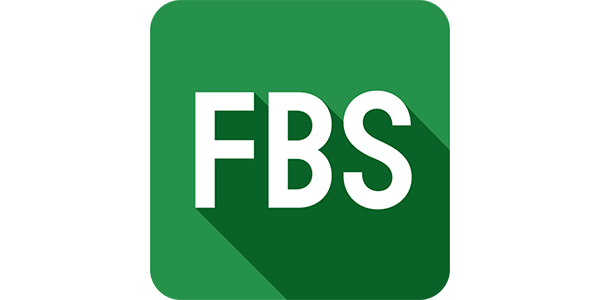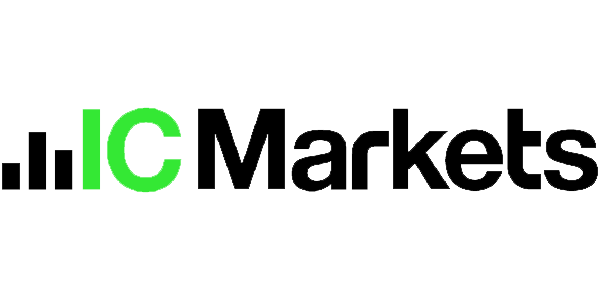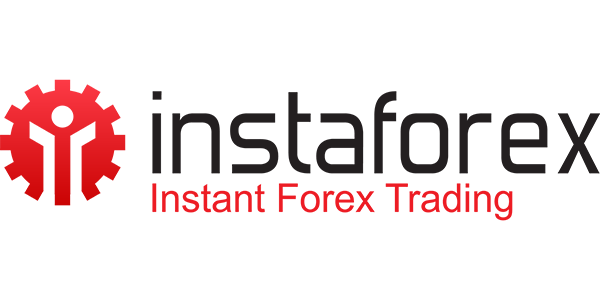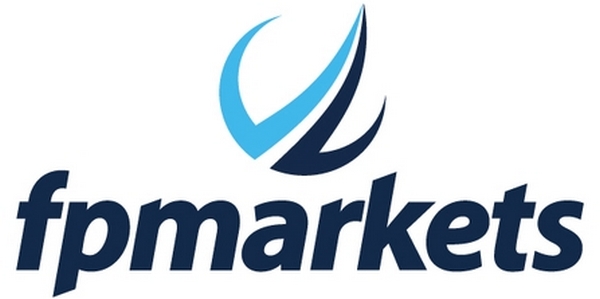List of The Best Platform for Trading
Here’s a quick comparison of the best trading platform based on their compatibility and market access.
| Best For | Commision | Min Dep | Leverage | Platforms | ||
|---|---|---|---|---|---|---|
| Beginners, Professionals, Active Traders | From $6 per lot | $100 | Up to 1:500 | MetaTrader 4 MetaTrader 5 Ctrader | ||
| Beginners, Active Traders | No commission (for Standard accounts) | $5 | Up to 1:1000 | MetaTrader 4 MetaTrader 5 | ||
| Beginners, Professionals, Active Traders | From $5 per lot | $100 | Up to 1:400 | AvaTradeGo MetaTrader 4 MetaTrader 5 | ||
| Beginners, Copy Traders | No commission | $200 | Up to 1:30 (1:5 for crypto) | eToro Platform MT4 MT5 | ||
| Beginners, Active Traders, Scalpers | No commission | $1 | Up to 1:2000 | MT4 MT5 WebTrader Exness Trade App | ||
| Beginners, Professionals, Active Traders | No commission (for Standard accounts) | $1 | Up to 1:3000 | MetaTrader 4 MetaTrader 5 | ||
| Beginners, Active Traders, Scalpers | From $5 per lot | $100 | Up to 1:50 | MetaTrader 4 FOREX.com Web Trader | ||
| Beginners, Active Traders, Scalpers | From $4 per lot | $100 | Up to 1:500 | MetaTrader 4 MetaTrader 5 cTrader FxProEdge | ||
| Beginners, Active Traders, Scalpers | No commission | $200 | Up to 1:1000 | MetaTrader 4 MetaTrader 5 WebTrader | ||
| Beginners, Professionals, Active Traders | From $6 per lot | $5 | Up to 1:1000 | MetaTrader 4 MetaTrader 5 Web Terminal Multi Terminal | ||
| Professionals, Active Traders, Scalpers | From $3 per lot | $200 | Up to 1:500 | MetaTrader 4 MetaTrader 5 cTrader | ||
| Beginners, Active Traders | No commission | $0 | Up to 1:200 | MetaTrader 4 ProRealTime WebTrader | ||
| Beginners, Active Traders, Proffesionals | No commission | $1 | Up to 1:1000 | MetaTrader 4 MetaTrader 5 | ||
| Beginners, Professionals | No commission on standard accounts | $10 | Up to 1:1000 | IQ Option Platform Mobile App | ||
| Active Traders, Beginners | No commission | $1 | Up to 1:50 | MetaTrader 4 OANDA Platform | ||
| Beginners, Active Traders, Scalpers | No commission on standard accounts | $25 | Up to 1:1000 | MetaTrader 4 MetaTrader 5 OctaTrader | ||
| Beginners, Active Traders, Scalpers | No commission | $200 | Up to 1:500 | MetaTrader 4 MetaTrader 5 cTrader | ||
| Active Traders, Scalpers | No commission | $10 | Up to 1:2000 | MT4 MT5 R StocksTrader | ||
| Inexperienced and Active Traders, Scalpers | From $2 per lot | $100 | Up to 1:500 | MetaTrader 4 MetaTrader 5 | ||
| Beginners, Proffesionals | No commission | $5 | Up to 1:1000 | MetaTrader 4 MetaTrader 5 |
Uganda Market Overview
Economic Growth & Structure
- Uganda is one of Africa’s faster-growing economies. In FY 2023/24, real GDP growth accelerated to 6.1 % (up from ~5.3 %) supported by expanded activity in services and industry.
- The African Development Bank projects growth of 6.0 % in 2024 and 7.0 % in 2025, driven by increased investment in oil sector infrastructure, stronger regional trade, and normalization of global supply chains.
- Uganda’s economy is resource-rich and agriculture-centric, with top exports including coffee, gold, and agricultural products.
- Oil is emerging as a potential game-changer: Uganda holds estimated recoverable reserves of over 1.4 billion barrels, and first commercial oil production is expected in the coming years.
Inflation, Monetary Policy & Public Finance
- Inflation is volatile in Uganda, influenced by global commodity prices, local supply constraints, and currency pressures.
- The Bank of Uganda (BoU) employs monetary policy tools to manage inflation and support stability. In recent years, credit, fiscal strain, and foreign conditions have pressured monetary settings.
- Public debt is rising. In 2024, Uganda’s public debt stock climbed ~18% to $29.1 billion.
- As debt servicing burden grows, there is concern over fiscal sustainability and the capacity to fund essential infrastructure and social programs.
Trade, External Sector & Currency
- Uganda runs structural trade deficits, importing capital goods, machinery, petroleum, and consumer imports, while exporting agricultural and mining products.
- Remittances and foreign direct investment (FDI) play a key buffering role for its external balance.
- Currency risk is significant. The local currency (Ugandan Shilling, UGX) can be volatile during external shocks, making forex pairs involving UGX or USD/UGX more sensitive.
- Uganda is positioning itself to become an energy exporter with upcoming oil output — this could strengthen foreign earnings and improve its balance sheet.
Financial Markets & Infrastructure
- Uganda’s capital markets are modest and less developed compared to more advanced economies. The stock market and bond markets exist but are relatively small in scale.
- Foreign financial participation is limited; many Ugandan traders use international brokers to access forex, commodities, and global equities.
- The forex trading industry is growing rapidly. With improving internet access and mobile adoption, more Ugandans are participating in global currency markets.
- Some sources indicate that forex trading is legal in Uganda and is regulated under the Capital Markets Authority (CMA). Brokers in Uganda may require a Category 1 Investment Advisor license to operate.
Risks, Challenges & Key Trends
Risks & Challenges
- Regulatory gaps: The oversight framework for retail forex is still developing, raising risks for local traders.
- Currency fluctuations: The UGX can depreciate under external pressure or commodity shocks, impacting traders’ returns.
- Debt burden: Rising public debt and fiscal deficits may limit government flexibility and increase macro risks.
- Commodity dependence: Heavy reliance on agriculture/gold means Uganda is vulnerable to crop shocks, global commodity price swings, and climatic risks.
- Limited capital market depth: Local options for diversification and hedging are restricted.
Key Trends & Opportunities
- Oil & energy development: With oil production forthcoming, Uganda could receive a structural boost in export revenue, which might strengthen the UGX and encourage investment.
- Technology-driven growth in trading: Greater internet and smartphone access is enabling more citizens to trade globally.
- Increasing regulation: The CMA and related bodies are working to bring more formal oversight to forex / derivatives sectors.
- Rise of hybrid broker models: Brokers adapting to African markets are offering local payment gateways, lower minimums, and region-specific conditions.
Legal & Regulatory Situation in Uganda
Legal Status of Forex Trading
- Forex trading is legal in Uganda. Ugandan individuals often trade via international brokers.
- However, although it is legal, there is no comprehensive local regulation specifically for retail forex brokers. Many broker review sites and local commentators point out that Uganda lacks strong oversight in this area.
- The Capital Markets Authority (CMA) of Uganda regulates capital markets (securities, public offerings etc.) and is the body responsible for licensing market professionals.
- Some sources claim that brokers must obtain a Category 1 Investment Advisor license under CMA to operate legally.
- That said, many brokers serving Uganda are regulated in other jurisdictions (FCA, ASIC, CySEC, FSCA, etc.). Ugandan traders must rely on such foreign regulation for safety.
Regulatory Gaps & Risks
- A major concern is lack of local client protection: if something goes wrong (broker misconduct, insolvency), Ugandans may have limited recourse under Ugandan law.
- Some brokers advertise as “licensed in Uganda” but those claims are often unverifiable.
- The Financial Intelligence Authority (FIA) in Uganda handles anti-money laundering and financial transaction monitoring.
- Because the forex segment has seen scams and fraud cases globally, Ugandan traders must be extra cautious about verifying broker credentials and withdrawal track records.
Key Criteria for Choosing a Forex Broker in Uganda
Given the regulatory uncertainty, selecting a trustworthy broker is essential. Here’s a checklist:
| Criterion | Why It Matters for Uganda | What to Check / Test |
|---|---|---|
| Regulation & License | Because Uganda lacks strong retail forex regulation, foreign regulation becomes your protection | Look for brokers regulated by top-tier authorities (FCA, ASIC, CySEC, FSCA); verify in public registers |
| Transparency & Safety of Funds | You want to be sure your funds are safe | Broker should use segregated client accounts, negative balance protection, audits |
| Acceptance of Ugandan Clients | Some brokers accept Uganda explicitly; others restrict them | Confirm from support or website that Uganda is allowed |
| Deposit & Withdrawal Methods (UGX, local banks, e-wallets) | To reduce currency conversion costs and withdrawal friction | Test deposit/withdrawal in small amounts; check whether broker supports UGX or local methods |
| Trading Costs & Fees | Spreads, commissions, swap, inactivity fees affect net profits | Compare across brokers for your typical trades |
| Execution Speed & Slippage | Good execution is essential in volatile markets | Use a demo or small live trade during news events to test slippage |
| Platform & Instrument Range | For flexibility and diversification | Support for MT4/MT5, mobile, web; availability of forex pairs, commodities, indices, crypto |
| Customer Support & Localization | If issues arise, you want timely support | Support in English (and any regional language), available during your hours |
| Reputation & Review History | Past behavior is a clue to future reliability | Read user reviews, reputation in Uganda, withdrawal testimonies |
| Education & Resources | Helps beginners get started | Broker should offer tutorials, webinars, market analysis |
Top Forex Brokers Serving Uganda in 2025
| Broker | Regulation (Foreign) | Spread Range / Commission | Minimum Deposit | UGX / Local Funding Support | Strengths | Weaknesses |
|---|---|---|---|---|---|---|
| Exness | FCA, FSCA, etc. | Low spread / commission varies | Low | Partial / via conversion | Fast withdrawals, variety | Local banking paths need validation |
| AvaTrade | ASIC, etc. | Moderate | ~$100 | Likely conversion | Strong brand, education | Higher cost for active traders |
| FP Markets | ASIC, etc. | Competitive | ~$100 | Conversion | Good tools, platform | Lower local visibility |
| XM | Multi-regulation | Moderate to low | Low | Conversion | Beginner friendly | Spreads vary by account |
| Pepperstone | FCA, ASIC, etc. | Very tight | Moderate | Conversion | Execution, infrastructure | Local deposit/withdrawal options limited |
| IC Markets | ASIC etc. | Raw spreads | ~$200 | Conversion | Low latency, pro features | Higher balance needed |
Exness
Exness
Strengths
- Very popular among Ugandan traders, often featured in Uganda broker listings.
- Offers low-cost trading, good platform suite, flexible account types and leverage.
- High liquidity and fast withdrawals are often cited in user reviews.
- Strong multi-jurisdiction regulation (FCA, FSCA, etc.) gives more trust.
Weaknesses / Things to Check
- Local UGX deposit/withdrawal support might be limited or through conversion, leading to fees.
- Because Uganda has weak local regulation, the recourse in case of dispute may rely on the broker’s foreign regulatory jurisdiction.
Best For
- Intermediate and advanced traders seeking cost efficiency and flexibility.
AvaTrade
AvaTrade
Strengths
- Good reputation, known global broker.
- Offers a wide suite of instruments beyond forex (stocks, indices, etc.).
- Decent educational resources, research, and platforms.
Weaknesses
- Minimum deposit may be higher for some account types.
- Local banking and withdrawal methods for Ugandans need verification.
Best For
- Those who want a balance of usability, trust, and diversified instruments.
FP Markets
FP Markets
Strengths
- Solid broker with good execution, instrument variety.
- Well regarded in global broker comparisons.
Weaknesses
- Lower visibility in Uganda compared to Exness or AvaTrade, so local support / streaming in Uganda might be less.
- Deposit/withdrawal in local currency or via local banks needs checking.
Best For
- Traders who want a reliable global broker with nice platform features.
XM
XM
Strengths
- Frequently recommended in Uganda broker lists.
- Lower barrier to entry (lower minimum deposit).
- Good for beginners or those starting small.
Weaknesses
- As with others, check local UGX support and withdrawal efficiency.
- Some account types may have wider spreads compared to ECN style ones.
Best For
- Beginners and casual traders who want a trusted brand with easier access.
Pepperstone & IC Markets
Strengths
- Known for low spreads, fast execution, strong infrastructure.
- Good for active traders, scalpers, algorithmic trading.
Weaknesses
- Local banking integration may lag or require workarounds.
- Requires higher account balances for some advanced accounts.
Best For
- Professional or semi-professional traders with bigger capital and performance needs.
Other Brokers (FBS, HFM, Just Markets, VT Markets, BlackBull)
These are viable alternatives, often offering unique advantages like high leverage, niche account types, or lower deposits. But they may lack local presence or strong track record in Uganda. Always apply due diligence on such brokers, checking user reviews, withdrawal history, regulation, and costs.
Strengths & Weaknesses of Forex Trading in Uganda
Understanding the local context helps clarify which broker traits matter most.
Strengths
- Growing interest & adoption
Many young Ugandans see forex trading as an alternative for income or investment. - Access to global markets
Through international brokers, Ugandans can trade forex pairs, indices, commodities, and global markets not available locally. - Low barriers to entry
Many brokers allow small minimum deposits, making forex accessible to more people. - Diverse instrument choices
Brokers offer not just forex but CFDs on stocks, indices, metals, crypto, etc.
Weaknesses / Risks
- Lack of strong local regulation
The biggest challenge is that Uganda does not have strong, enforceable regulation for retail forex. - Risk of scams
Unregulated brokers or fraudulent schemes can prey on traders unaware of proper verification. - Currency conversion & funding friction
Many brokers do not support UGX (Ugandan Shilling), meaning conversion costs and delays. - Withdrawal difficulties
Local banking improvements are needed; some traders report delays or rejections when withdrawing. - Volatility & leverage risk
High leverage increases risk; currency markets can move fast.
Criteria for Choosing a Trading Platform in Uganda
When selecting a forex or trading platform as a Ugandan trader, the following criteria are especially important. These help you filter out risky options and zero in on trustworthy, effective platforms:
Regulation & Legal Status
- Since Uganda currently lacks strong retail-forex regulation, priority should be given to brokers regulated by top-tier authorities (FCA, ASIC, CySEC, FSCA, etc.). SafeForexBrokers notes that the “CMA does not offer any protection for forex traders” in Uganda, so foreign regulatory backing matters.
- Check whether the broker discloses its regulatory license(s) clearly (license number, regulator name).
- Confirm the broker’s regulatory status in the regulator’s public registry.
- Prefer brokers that offer client asset segregation and negative balance protection as additional safety features.
Acceptance of Ugandan Clients & Onboarding
- The broker must explicitly accept clients from Uganda (not block your country). DayTrading notes that many international brokers accept Ugandan traders even if local regulation is weak.
- The onboarding (KYC / document submission) should be manageable: clear instructions, reasonable document requirements.
- Account verification speed and ease can also separate good brokers from those that delay access.
Deposit & Withdrawal Options / Local Currency Support
- Ideally, the platform should support depositing/withdrawing in UGX (Ugandan Shillings) or via local bank transfers, mobile money (MTN, Airtel), or trusted e-wallets.
- If only USD/EUR accounts are available, check the conversion fees and exchange rate margins applied by the broker or payment processor.
- Test a small withdrawal early to gauge the time, fees, and success rate.
Trading Costs & Fee Transparency
- Compare spreads, commissions, swap/overnight costs, and any hidden fees (inactivity, withdrawal, funding).
- The advertised “zero commission” often comes with wider spreads — look at real execution.
- Prefer brokers that publish their typical or benchmark spreads and clearly show their fee schedule.
Platform & Technology Quality
- Support of reputable platforms (MT4, MT5, cTrader) or reliable proprietary platforms — mobile, web, desktop.
- Performance during volatility: uptime, stability, speed, order execution quality, slippage.
- Features like charting tools, technical indicators, alerts, automated trading (EAs / API), backtesting, copy trading are bonuses.
Instrument Range / Market Access
- A broad variety of tradable instruments: major & minor forex pairs, metals, commodities, indices, stocks / CFDs, possibly crypto (if allowed).
- Diversification helps manage risk and gives more trading opportunities.
Execution Speed & Slippage
- Good broker fills orders quickly and with minimal slippage, especially during market news.
- Test with small live trades or demo accounts during volatile times to gauge performance.
Customer Support & Local Relevance
- Support should be available during your local hours (Uganda time zone) and in English (or local languages).
- Responsiveness in resolving deposit/withdrawal or account issues matters heavily for users in Uganda.
- Local knowledge (banking paths, payment processors) is a plus.
Reputation, Reviews & Withdrawal History
- Search for feedback from Ugandan traders: withdrawal experiences, complaints, reliability.
- Avoid brokers with many unresolved complaints or negative reviews.
- See how long the broker has been operating (track record, longevity).
Risk Management / Safety Features
- Features like stop-loss orders, guaranteed stops, trailing stops, account equity protection.
- Two-factor authentication (2FA), SSL encryption, secure client area.
- Broker’s policy for negative balances — whether you can lose more than your capital (prefer negative balance protection).
Popular Instruments Among Ugandan Traders
Because Uganda has a relatively small domestic capital market and limited availability of derivative infrastructure, many Ugandan traders look outward to global markets. The instruments they trade reflect accessibility, liquidity, and cost. Below are the most commonly traded instruments by Ugandans, along with key advantages and caveats:
| Instrument | Why Ugandan Traders Use It | Key Considerations / Risks |
|---|---|---|
| Major Forex Pairs | Liquidity, tight spreads, broad availability | Spreads widen during volatility; cross-asset risk |
| Gold & Precious Metals | Safe havens, culturally relevant | Overnight costs, USD exposure |
| Index CFDs | Market-level exposure, diversification | Leverage risk, correlation effects |
| Stock CFDs | Access to global equities with less capital | No ownership, dependence on broker terms |
| Crypto / Digital Assets | High volatility, speculative gains | Regulation, higher risk, platform coverage |
| Local USE Equities | Direct exposure to Ugandan economy | Lower liquidity, fewer instruments |
| Futures / Options (via CFDs) | Strategy flexibility (hedge, speculation) | Complexity, margin risk, premium costs |
Forex / Currency Pairs
- Major currency pairs (e.g. EUR/USD, USD/JPY, GBP/USD) are the staples for many Ugandan forex traders.
- Minor and cross-pairs (e.g. EUR/GBP, AUD/JPY) are also used for diversification away from dollar pairs.
- Because Uganda’s local currency (UGX) is less frequently offered by many brokers, most traders operate in USD, EUR, or GBP base accounts.
- Many platforms offer exotic pairs as well (emerging market currencies) but these often come with wider spreads.
CFDs on Commodities & Precious Metals
- Gold (XAU/USD) is especially popular — in part because gold is historically valued in many African contexts as a store of value.
- Silver (XAG/USD) is also traded, though less frequently than gold.
- Some traders also access energy commodity CFDs like crude oil (WTI/Brent) through global brokers.
- Other commodities (like agricultural or soft commodities) are less common among Ugandans due to lower liquidity and higher barriers.
Indices / Index CFDs
- Global indices (e.g. S&P 500, NASDAQ, FTSE, DAX) are widely used by Ugandan traders to gain exposure to broad markets.
- Some brokers provide local African / regional indices or emerging market indices as opportunities to diversify beyond forex.
- Index CFDs allow traders to take positions on the movement of entire stock baskets rather than individual stocks.
Stock / Equities via CFDs
- Many Ugandan traders use CFDs on international equities (e.g. tech companies, large global brands) rather than directly owning shares.
- Using CFDs provides flexibility, lower capital requirement, and sometimes leverage.
Cryptocurrencies / Digital Assets
- Some brokers and trading platforms accessible to Ugandans offer crypto CFDs or spot crypto trading (Bitcoin, Ethereum, etc.).
- Given the speculative nature and volatility, crypto is used more by risk-seeking traders.
Local Stocks & Uganda Securities Exchange (USE)
- Uganda has its own stock market, the Uganda Securities Exchange (USE).
- Traders who wish to participate more domestically may trade Ugandan equities via local brokers.
- The ALTX East Africa Exchange (ALTX) also operates in Uganda, offering trading of securities and ETFs.
Futures, Options & Other Derivatives
- Globally, through brokers offering derivatives or CFD versions of futures and options, some Ugandan traders engage in futures/option contracts (e.g. on indexes, commodities).
- Direct access to futures exchanges from Uganda is less common, so many use CFD proxies.
Conclusion
Forex trading in Uganda is expanding quickly as more individuals gain access to digital platforms and global markets. However, the local regulatory framework remains limited, which means the choice of broker is the single most important decision for Ugandan traders. Ultimately, success in trading depends not only on picking the right broker, but also on managing risk, starting small, and continually building knowledge. A reputable broker provides the foundation, but discipline and strategy remain the trader’s true edge.
Tips & Best Practices for Ugandan Traders
- Always check broker legitimacy via regulatory websites.
- Begin with small deposits and withdrawals to test processes.
- Use proper risk management: stop-loss, not over-leveraging.
- Stay educated — use broker resources, webinars, demo accounts.
- Diversify trading instruments — don’t rely only on one forex pair.
- Keep an eye on global news, central bank decisions, and economic indicators that move forex markets.
- Be cautious of “get rich quick” schemes or brokers promising guaranteed profits.
FAQs
Is forex trading legal in Uganda?
Yes. Forex trading is legal in Uganda. However, the sector is not fully regulated locally, so most traders use international brokers regulated abroad (FCA, ASIC, CySEC, FSCA).





















